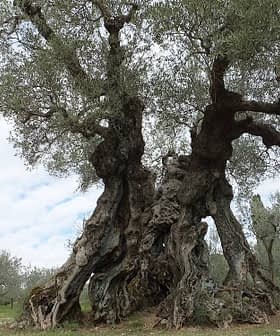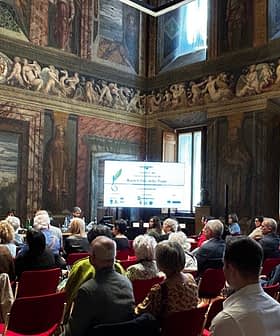In a moment of extreme difficulty for Italian olive oil producers, Slow Food has launched the first “presidium” to promote the environmental, health and economic value of Italian extra virgin olive oil.
Since 1999, Slow Food — the global organization founded in 1989 in Italy by Carlo Petrini to prevent the disappearance of local food cultures and traditions — has been running the “presidia” project to safeguard and preserve hundreds of products at risk of extinction.
While such products had been until then only catalogued through the Ark of Taste Project, with the Presidia, managed by the Slow Food Foundation for Biodiversity, the organization took a step further, connecting with the producers themselves to promote and divulge their products, skills and knowledge and to rescue the endangered biodiversity and traditions they conveyed.
In 2008, Slow Food Italy eventually established the Slow Food Presidia label to accompany, identify, protect and promote Italian Slow Food Presidia products, effectively intervening on the commercial side as well.
Later on, the Slow Food Presidia brand begun to include foreign products too, and it now includes more than 450 presidia and more than 13,000 producers, from raw milk cheese to rare mono-floral, high-mountain honey and from indigenous communities’ products to Italian disappearing traditional recipes.
On May 16, at Genoa’s Slow Fish 2015 event celebrating sustainable seafood, Slow Food Italy finally launched the first national presidium dedicated to extra virgin olive oil, to promote the environmental, health and economic value of the Italian produce. The idea of the presidium became more relevant since Italian olive oil producers Italy have faced the same critical situation.
Moreover, Slow Food Foundation acknowledged that “the average production process of quality Italian extra virgin olive oil is getting more and more demanding for independent producers while the global market increasingly rewards low-quality oils.”
Taking into consideration the catastrophic 2014 harvest and the Xylella fastidiosa epidemic, and in view of the huge importance played by extra virgin in the Italian food culture and in the Mediterranean diet and lifestyle, Italian extra virgin olive oil deserves to be protected and safeguarded.
During the launch event, Slow Food Italy president Gaetano Pascale said: “With the launch of this presidium we are ringing an alarm: more and more olive trees are gradually being abandoned because of the rising costs and increased competition. The result is an irreversible loss of biodiversity.”
Being a national presidium, thus not rooted in a specific region several areas of Italy traditionally used for olive growing, producers from Liguria to Sicily will be included and there will be regional representatives. At the moment, the presidium comprises 26 producers, but many more can potentially join if they follow the set criteria outlined by Francesca Baldereschi, in charge of the Italian Slow Food Presidia.
To participate in the program, olive farms must grow local, indigenous cultivars and they have to manage their groves without the use of synthetic fertilizers or herbicides (only products with low environmental impact and no residual in the final product are allowed). Good agronomic practices to avoid erosion and landslides are requested in the case of slopes or terraced fields and at least 80 percent of the trees must be at least 100 years of age.
Finally, “producers must use a narrative label to sufficiently recount and promote their stories, territory and work.”








